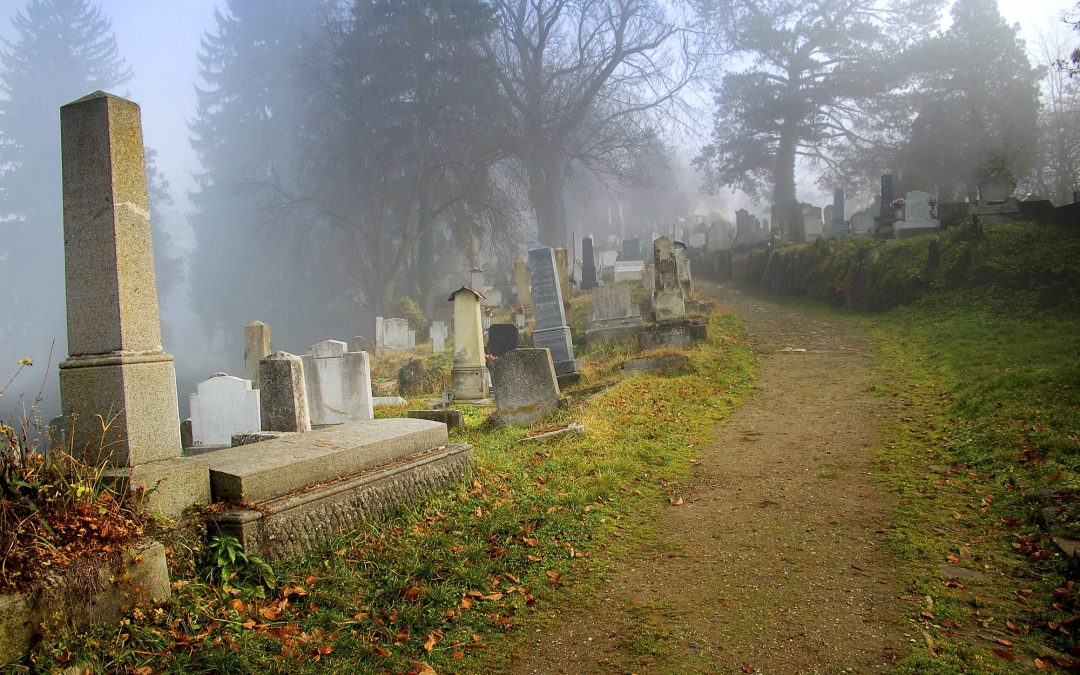by Terry Arnold
I have—and it was one of the most bizarre experiences of my life.
Sadly, I’ve probably attended more funerals than most, due to my involvement in the inflammatory breast cancer community. But even before that, funerals have been a thread woven through my life. They mark milestones, moments of passage—and sometimes, they carry more meaning than we realize at the time.
In fact, my very first memory is of a funeral.
For years, I believed my first memory was of my baby brother coming home from the hospital. I was three. But in truth, there’s an earlier, more mysterious memory that stayed with me. One day, I asked my grandmother about it. I remembered a long car ride, falling asleep, waking up hot and hungry and confused. It felt like we had traveled across the world. When we arrived, everything felt foreign. The people were dressed differently—many of the women wore aprons over their dresses, like something out of a Polish folk festival. Everyone spoke a different language, including my grandfather. And everyone was crying.
I remember being very quiet, very still. Even as a small child, I understood this moment was sacred. Whoever had died must have been deeply loved.
It was only then that I realized: that strange, early memory was my great-grandfather’s funeral. Everyone there was a Polish immigrant. They still lived the old ways, spoke the old language. My great-grandfather was a beloved man. And though I wish I remembered him, I feel grateful that my first real memory was of such reverence and shared sorrow.
Fast-forward to the present—and to a very different kind of funeral.
This time, it was a relative of my husband’s. She had lived a long life—94 years. But when we arrived, it quickly became clear: no one was mourning her. There were no warm stories. No tender eulogies. No tears. She had asked for no prayers or religious rituals, even threatening to “come back and curse” anyone who mentioned God. She had lived close by, but in over 45 years, I saw her fewer than ten times. She always had an excuse to stay away. At the time, I thought she was just busy. But as it turns out—she was cruel. And not just to me. To everyone.
This wasn’t a funeral for the living to find comfort. It was a gathering of the emotionally exhausted. People were relieved, not grieving. She had hurt so many, across so many years, and no one had ever found a way to stop her.
It broke my heart—not for her, but for her children and grandchildren. The pain she inflicted wasn’t buried with her. It was passed down, still living in the people she left behind. Her legacy was bitterness, and it was still doing harm.
When I was a child, a Bible verse used to trouble me: “the sins of the fathers will be visited upon the children to the third and fourth generation” It felt unfair. But now, I see it differently. It’s not a curse—it’s a ripple. Our choices—our sins—affect the next generation. And the next. Pain, if left unacknowledged, becomes inheritance.
But I believe we can break that chain.
We can recognize harmful patterns. We can do the work to heal. And we can teach our children and grandchildren how to heal too—even from our own mistakes. Even from our best intentions gone wrong.
We often say funerals are for the living. And I believe that’s true. But the one I attended that day gave no peace, no comfort—only clarity. It forced me to think deeply about what I want to leave behind. What will people feel when they gather to say goodbye to me?
I want mine to be love, in the truest sense of the word, charity, patience, kindness, compassion, self-sacrifice and enduring.
I want my legacy to be something worth carrying.
